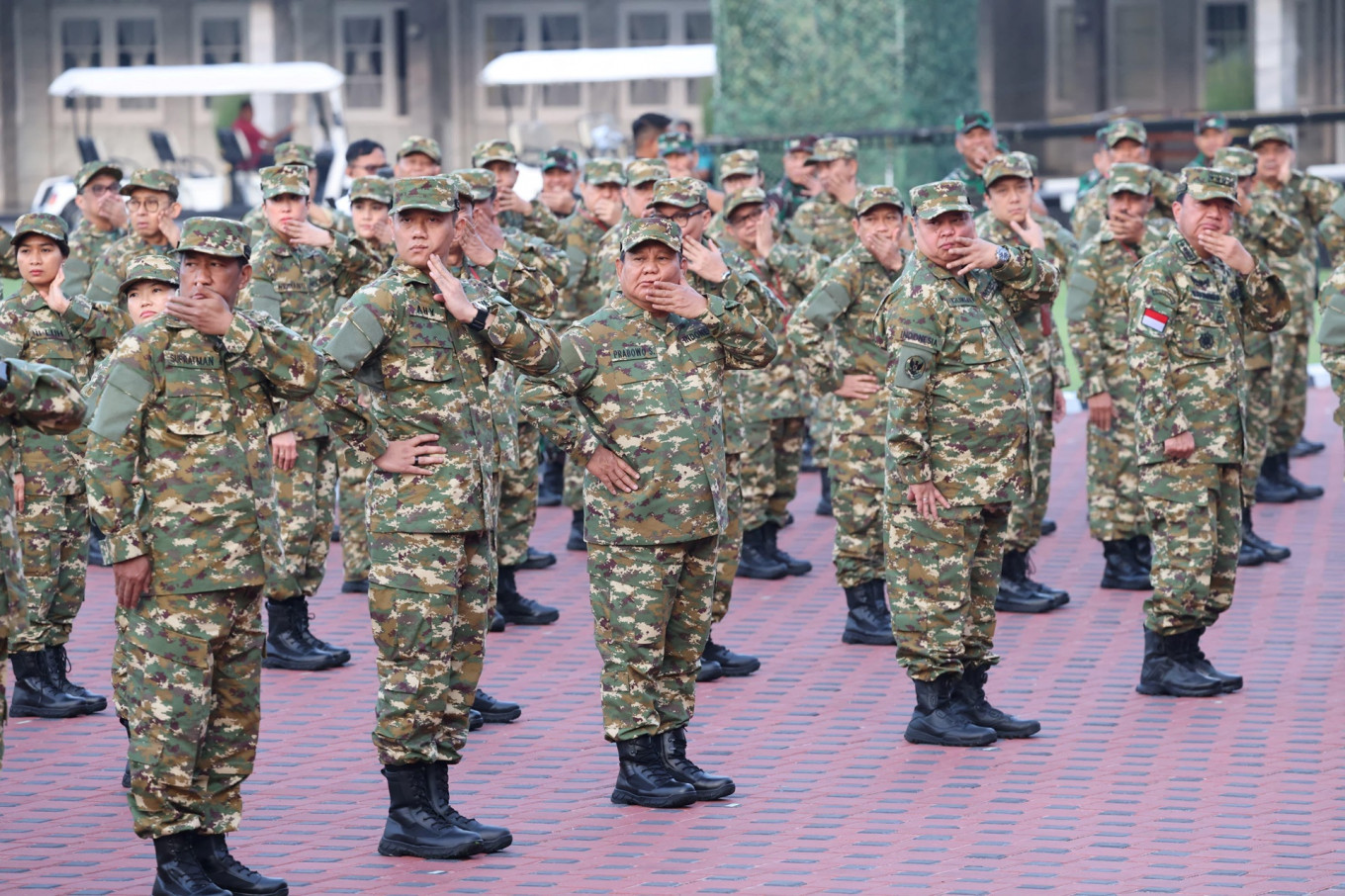Popular Reads
Top Results
Can't find what you're looking for?
View all search resultsPopular Reads
Top Results
Can't find what you're looking for?
View all search resultsSexism in Indonesian politics
Out of the 48 ministers in President Prabowo Subianto’s newly inaugurated Red and White Cabinet, there are only five women, and only eight female deputy ministers out of a total of 56. The same trend exists for other public offices in the country.
Change text size
Gift Premium Articles
to Anyone
As a largely patriarchal society, the bar is quite low for gender equality in Indonesia, especially in politics.
Out of the 48 ministers in President Prabowo Subianto’s newly inaugurated Red and White Cabinet, there are only five women, and only eight female deputy ministers out of a total of 56. The same trend exists for other public offices in the country.
Some may argue that experience and good track records are more important than representation. But against the towering presence of conservatism in society, gender equality and fair play for women are something that remain on the back burner. And what we see in public during competition between the genders is open and blatant sexism.
The case has been evident during candidate campaigns and debates for the November regional elections. In a debate session for the Banten election, governor candidate Achmad Dimyati Natakusumah said women “must be protected” and that is why they should not be given “heavy burdens, especially [the role of] governor.”
While he did not directly address his rival Airin Rachmi Diany, it was clearly a veiled aggression against the female politician, who is more popular than him in the surveys.
Achmad is not the only regional head candidate to use sexist remarks during the campaign season. In Sleman, Central Java, regent candidate Harda Kiswaya was criticized after his campaign poster showed him and his running mate Danang Maharsa with the words “an imam [leader] must be a man” in Javanese.
It is common to see candidates engage in black campaigns or even exchange sharp remarks. But to see such widespread sexism during the election campaigns this year brings us to the question of whether it is just competition or misogyny.
And will it be acceptable to voters?
According to the General Elections Commission (KPU), there are almost equal numbers of voters across genders in the November elections, with a total of 102.6 million female voters and 102.2 million male voters nationwide.
The figures are in stark contrast if we look into the composition of regional head candidates based on gender. About 89 percent of more than 3,100 regional head and deputy regional head candidates are men.
The fact that most of the candidates are male may explain the widespread sexism. And worse, they could still get elected on Nov. 27 simply because there are so few women in the race.
In Prabumulih, South Sumatra, mayor candidate Arlan introduced his four wives during a campaign. They all smiled and looked happy and very supportive of their husband. And the crowd seemed delighted to see them that day.
Conservatism and patriarchy are still so deeply rooted in Indonesia that in politics, male superiority, even when mildly aggressive, seems tolerable.
This deeply engrained sexism is also behind the high number of child marriages and various health consequences that women and children must endure from these unions. Indonesia ranks fourth among countries with highest absolute numbers of child marriage in the world, according to civil group Girls Not Brides, with a total of 32.1 million recorded this year.
Unlike the trends in the executive branch, the House of Representatives has set a record for having its highest number of female legislative members this year, with 127 members, or 21 percent of the 580 lawmakers. Critics have pointed out that despite the increase in numbers, some of the female lawmakers are supported by their husbands or fathers, who have high-ranking positions in the government.
But we should have faith in our female lawmakers. We hope that they will fight for gender equality and more opportunities for women in all walks of life, regardless of what brought them to their positions.











